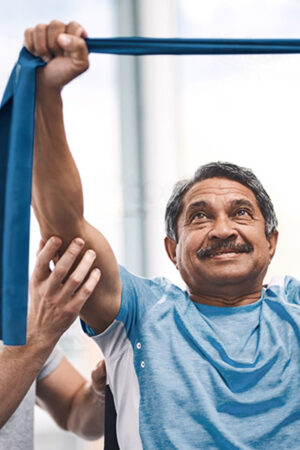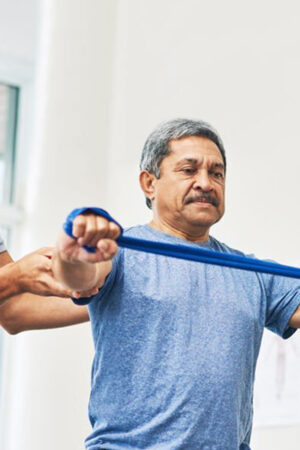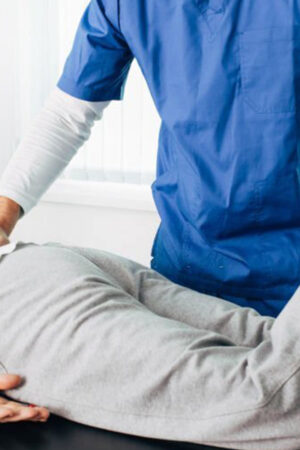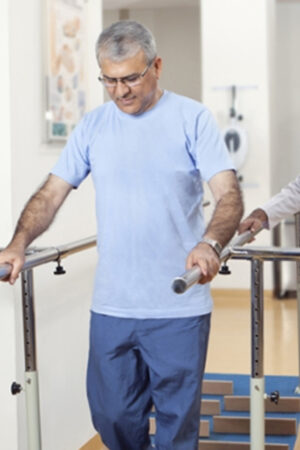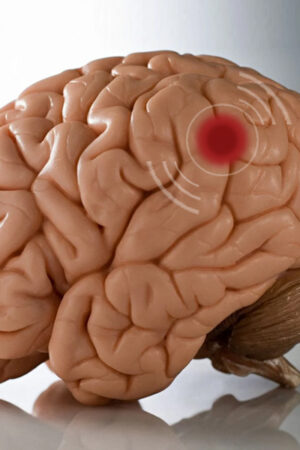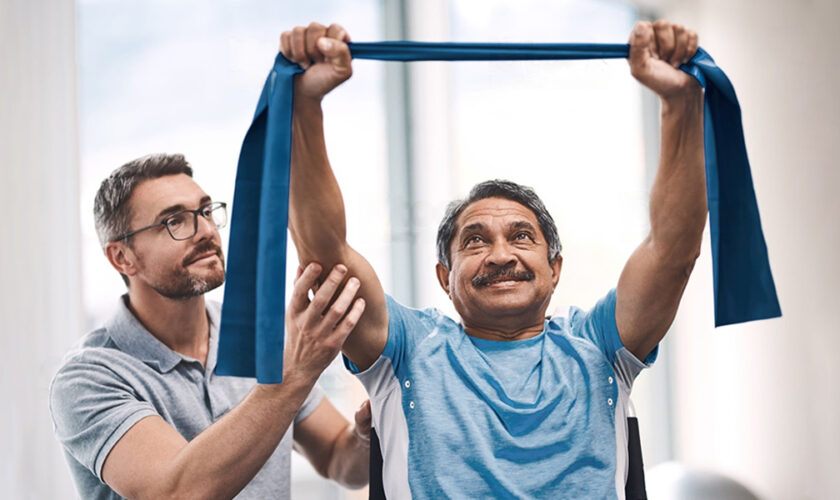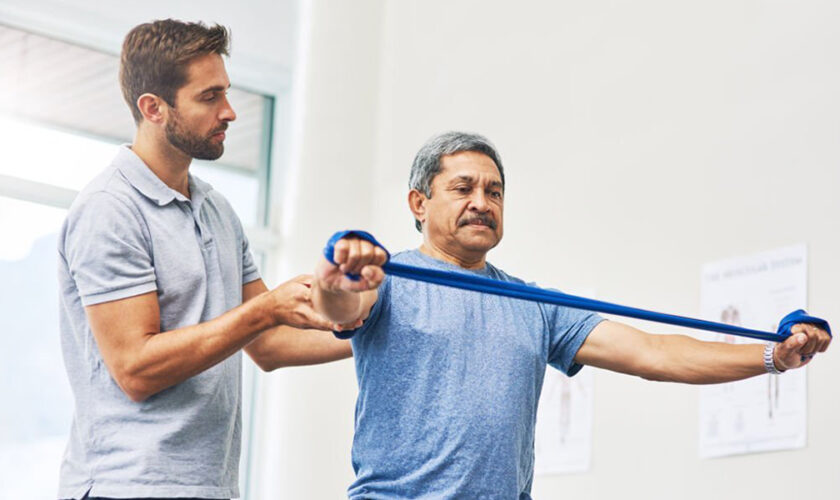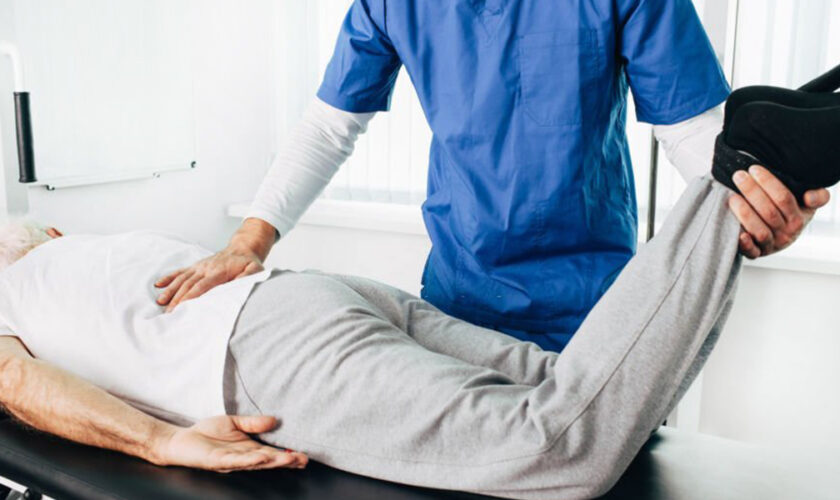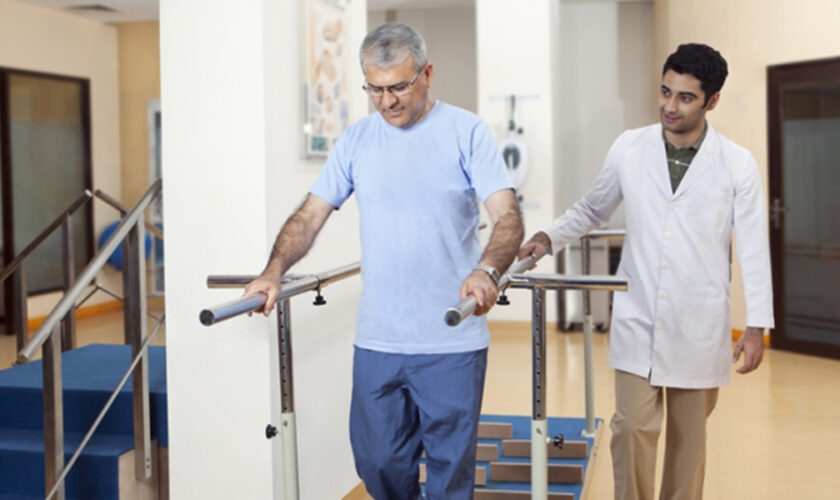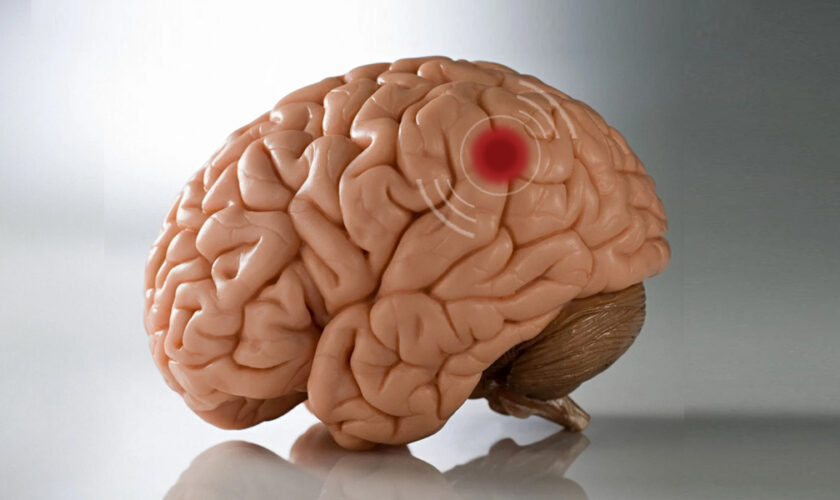The golden years of life should be marked by vitality and well-being, yet respiratory challenges can cast a shadow over this chapter. Seniors facing conditions like Chronic Obstructive Pulmonary Disease (COPD), pulmonary fibrosis, or post-surgery recovery often find themselves grappling with reduced lung function and its subsequent impact on daily life. Enter pulmonary rehabilitation—a transformative and holistic approach aimed at enhancing senior respiratory health. In this blog, we will delve into the multifaceted dimensions of pulmonary rehabilitation at Athulya Assisted Living, exploring how it goes beyond mere exercises to breathe life and vibrancy into the senior years.
Understanding Pulmonary Rehabilitation:
Pulmonary Rehabilitation Services for Older Adults is a specialized program that is meticulously crafted to cater to individuals grappling with chronic respiratory conditions, ranging from Chronic Obstructive Pulmonary Disease (COPD) to asthma and interstitial lung disease. However, its significance extends beyond those with specific diagnoses, proving highly beneficial for seniors even without overt respiratory issues.
Components of Pulmonary Rehabilitation:
Tailored Exercise Programs:
Central to pulmonary rehabilitation is a carefully curated exercise regimen. Unlike generic fitness routines, these programs are meticulously designed to cater to the unique needs and capabilities of each senior participant. Incorporating a variety of exercises, ranging from cardiovascular workouts to strength training, these programs aim to gradually improve lung capacity, boost endurance, and enhance overall physical fitness. The emphasis is not on pushing seniors to their limits but on creating a gradual and safe progression that aligns with individual capabilities. These tailored exercises contribute not only to improved respiratory function but also to increased muscle strength and cardiovascular fitness. Seniors engaging in these programs find themselves more equipped to navigate daily activities with ease, experiencing reduced fatigue and an enhanced sense of well-being. The tailored exercise component of pulmonary rehabilitation is a testament to our program’s commitment to promoting optimal health and vitality in the elderly population.
Education on Respiratory Conditions:
Knowledge is empowerment, and pulmonary rehabilitation places a strong emphasis on educating seniors about their respiratory conditions. This crucial aspect goes beyond physical exercises, providing seniors with valuable insights into the nature of their ailments and equipping them with the knowledge to actively manage their respiratory conditions. Participants in pulmonary rehabilitation gain knowledge about breathing techniques and strategies to cope with the challenges posed by chronic respiratory diseases. By fostering awareness and understanding, seniors become proactive participants in their health journey, making informed decisions that contribute to improved respiratory function and overall well-being. Education that we offer on respiratory conditions within the context of pulmonary rehabilitation empowers seniors, enabling them to take charge of their health and navigate daily life with a heightened sense of control and confidence.
Nutritional Guidance:
It plays a pivotal role in the holistic approach of pulmonary rehabilitation, recognising the intimate connection between diet and respiratory health. Seniors engaged in pulmonary rehabilitation benefit from our tailored nutritional guidance that goes beyond the conventional dietary recommendations. Our program emphasises the importance of a well-balanced diet rich in essential nutrients, vitamins, and minerals to support lung function and overall well-being. Seniors receive personalised advice on dietary choices that can positively impact their respiratory health. A nutritionally optimized diet not only aids in managing weight but also contributes to enhanced immune function, crucial for seniors with respiratory conditions. By addressing the nutritional aspect within the framework of pulmonary rehabilitation, seniors are empowered to make dietary choices that complement their respiratory health goals, fostering a comprehensive and proactive approach to overall well-being.
Psychosocial Support:
It forms a crucial pillar of pulmonary rehabilitation, recognising that respiratory health extends beyond physical well-being to include mental and emotional aspects. Seniors participating in pulmonary rehabilitation benefit from a supportive environment that addresses the psychosocial challenges often associated with chronic respiratory conditions. This includes access to support groups, counseling services, and coping mechanisms tailored to their unique needs. The emotional well-being of seniors is nurtured, promoting a positive outlook and resilience in the face of challenges. Psychosocial support not only acknowledges the emotional impact of respiratory conditions but actively works towards creating an atmosphere where seniors feel understood, valued, and connected. By addressing the psychosocial dimensions within the framework of pulmonary rehabilitation, seniors experience a holistic approach to health that recognizes the interconnectedness of mind and body, contributing to an overall enhanced quality of life.
Benefits of Pulmonary Rehabilitation for Seniors:
Improved Respiratory Function:
The primary goal of pulmonary rehabilitation is to enhance respiratory function. Through our carefully curated blend of tailored exercises, breathing techniques, and comprehensive education, seniors engaging in pulmonary rehabilitation witness a significant boost in their lung capacity, efficiency, and overall respiratory function. Our program’s focus on strengthening respiratory muscles contributes to reduced breathlessness, increased oxygenation, and a newfound ability to engage in daily activities with greater ease. Seniors often report enhanced energy levels and decreased fatigue, illustrating the profound impact of improved respiratory function on their overall vitality. The success of pulmonary rehabilitation in this aspect not only empowers seniors in managing their respiratory conditions but also cultivates a renewed sense of confidence and control over their health journey, allowing them to breathe life into their golden years with vigour and resilience.
Enhanced Physical Fitness:
It is a transformative outcome of pulmonary rehabilitation, contributing to a holistic improvement in senior respiratory health. Our tailored exercise programs within pulmonary rehabilitation are designed not only to enhance lung function but also to boost overall physical fitness. Seniors engaging in these programs experience improvements in cardiovascular fitness, muscle strength, and endurance. As a result, they find themselves more capable of navigating daily activities with greater ease and reduced fatigue. Our focus on personalised exercise regimens ensures that seniors progress at a pace aligned with their unique capabilities, promoting sustainable fitness gains. This holistic approach to physical well-being not only fosters respiratory health but also empowers seniors to maintain an active and independent lifestyle, embodying the essence of healthy ageing. The enhanced physical fitness achieved through pulmonary rehabilitation becomes a key contributor to the overall well-being and vitality of seniors, allowing them to savour life with renewed energy and enthusiasm.
Disease Management and Prevention of Exacerbations:
Prevention of exacerbations and disease management are integral facets of how pulmonary rehabilitation profoundly enhances senior respiratory health. Seniors navigating chronic respiratory conditions, such as COPD or pulmonary fibrosis, often find themselves susceptible to exacerbations that can significantly impact their daily lives. Pulmonary rehabilitation addresses this challenge by equipping seniors with comprehensive education on disease management strategies. Participants learn effective medication usage, proper breathing techniques, and lifestyle adjustments that empower them to proactively manage their respiratory conditions. By adopting these strategies, seniors not only experience a reduction in the frequency and severity of exacerbations but also gain valuable tools to prevent future occurrences. This proactive approach not only contributes to an improved quality of life but also aids in minimising hospitalisations, allowing seniors to enjoy their golden years with a greater sense of control over their respiratory health. Pulmonary rehabilitation emerges not just as a remedy for existing respiratory challenges but as a preventive measure, fostering long-term well-being and resilience in the face of chronic conditions.
Increased Independence:
It is a transformative outcome of pulmonary rehabilitation, redefining the narrative for seniors grappling with respiratory challenges. As seniors engage in tailored exercise programs and comprehensive education within pulmonary rehabilitation, they witness not only an improvement in respiratory health but also a remarkable boost in overall physical capabilities. This newfound strength and endurance empower seniors to reclaim a sense of independence in their daily lives. Tasks that may have once felt burdensome become more manageable, fostering a renewed confidence in navigating daily activities. Our personalised approach to pulmonary rehabilitation ensures that seniors progress at a pace suitable for their unique capabilities, promoting sustainable gains in independence. Our program becomes a catalyst for breaking free from the constraints imposed by respiratory conditions, allowing seniors to savour a lifestyle marked by autonomy, self-sufficiency, and a sense of accomplishment in their golden years. Pulmonary rehabilitation emerges as a key enabler, not only enhancing respiratory health but also promoting a life of increased independence and vitality for seniors.
Thus, in the pursuit of healthier and more fulfilling senior years, pulmonary rehabilitation emerges as a beacon of hope. It transcends the conventional view of exercise programs by embracing a comprehensive approach that nurtures respiratory health from multiple angles. So, seniors engaging in pulmonary rehabilitation at Athulya Senior Care not only witness physical transformations but also experience an upliftment in their mental and emotional well-being. As we advocate for a more vibrant ageing experience, recognising the transformative impact of pulmonary rehabilitation becomes crucial. It is a testament to the fact that with the right support and interventions, seniors can breathe life into their golden years, embracing each day with renewed vitality and vigour.
Information: This blog is for informational purposes only and should not be considered as a substitute for any treatment or diagnosis. Seek professional help in case of any emergency. Athulya is not responsible for any consequences.
